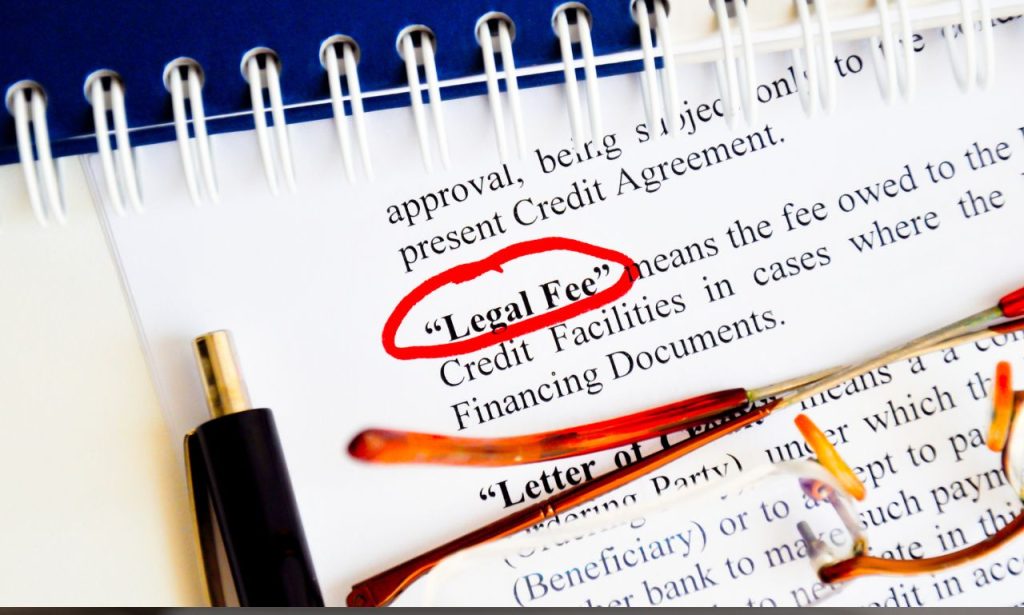You step into the courtroom, a sense of trepidation battling with the hope for a just resolution. The legal process, often daunting and complex, feels like navigating a labyrinth with hidden pitfalls and unexpected turns. And then there’s the looming shadow of legal fees, a significant factor that can cast a long shadow over your pursuit of justice. Understanding what it means to be awarded legal fees, and the circumstances under which it’s possible, can be crucial in navigating this intricate legal landscape.
The Concept of Legal Fees
Legal fees represent the financial compensation that lawyers, attorneys, and legal professionals receive for their services. These fees encompass a broad spectrum of legal work, including:
- Consultations: Initial meetings to discuss your case and explore legal options.
- Pleadings and Motions: Drafting and filing legal documents that outline your arguments and requests to the court.
- Discovery: The process of gathering evidence, including depositions, interrogatories, and requests for documents.
- Negotiations: Attempting to reach a settlement outside of court through discussions and offers.
- Court Appearances: Representing you in court hearings, trials, and other legal proceedings.
The intricacies of legal proceedings, often requiring specialized knowledge and experience, necessitate these fees. However, the question of who bears the burden of these costs – the winning party, the losing party, or both – lies at the heart of understanding what does it mean to be awarded legal fees.
The Significance of Awarding Legal Fees

The allocation of legal fees plays a pivotal role in the legal system, serving several crucial functions:
- Access to Justice: Awarding legal fees to the prevailing party can help ensure that individuals, regardless of their financial resources, have access to legal representation and the ability to protect their rights.
- Deterrence of Frivolous Lawsuits: The potential financial burden of paying the opposing party’s legal fees can discourage individuals from pursuing meritless or frivolous lawsuits, promoting efficiency within the legal system.
- Accountability for Wrongdoing: In cases involving egregious misconduct, such as fraud or malicious prosecution, awarding legal fees can serve as a form of accountability, penalizing the wrongdoer and deterring similar behavior in the future.
However, this allocation isn’t always straightforward. The decision to award legal fees, and the party responsible for paying them, hinges on a complex interplay of factors, including the specific legal rules, the nature of the case, and the conduct of the parties involved.
Types of Legal Fees
Legal fees are not a one-size-fits-all concept. They come in various forms, each with its own implications for both the client and the attorney:
1. Fixed Fees
Fixed fees, as the name suggests, involve a predetermined, lump-sum payment for a specific legal service or representation in a particular matter. This type of fee arrangement offers a sense of predictability and transparency, allowing you to know the cost upfront.
2. Hourly Rates
Hourly rates represent the most common fee structure, particularly in complex litigation. Attorneys charge an hourly rate based on their experience, expertise, and the geographic location of their practice.
3. Contingency Fees
Contingency fees offer a unique approach, allowing individuals who might not otherwise afford legal representation to pursue their claims. Under this arrangement, the attorney agrees to take a percentage of the amount recovered if the case is successful. If the case is not successful, the client typically pays no attorney’s fees.
4. Statutory Fees
In certain legal matters, statutes or laws prescribe specific fees that attorneys can charge. These statutory fees are often found in areas such as:
- Probate: Administering a deceased person’s estate.
- Real Estate Transactions: Buying or selling property.
Understanding the type of fee structure involved in your case is paramount. It not only clarifies your financial obligations but also provides insights into the potential costs and benefits of pursuing legal action.
Circumstances Leading to the Award of Legal Fee
Courts carefully weigh a multitude of factors when deciding whether to award legal fees. While each case presents unique circumstances, several recurring themes often influence these decisions:
1. Frivolous Litigation
Courts possess the authority to award legal fees to deter the filing of frivolous lawsuits, those lacking a reasonable basis in law or fact. This serves to:
- Protect Defendants from Harassment: Shielding individuals and businesses from the burden of defending against meritless claims.
- Preserve Judicial Resources: Ensuring that courts can focus their time and resources on resolving legitimate disputes.
However, determining whether a lawsuit is truly frivolous requires careful consideration. Courts must strike a balance between discouraging frivolous litigation and safeguarding the right to access the courts.
2. Discovery Abuse
Discovery, the process of gathering evidence, plays a crucial role in litigation. However, parties sometimes abuse this process to harass their opponents, delay proceedings, or gain an unfair advantage. Examples of discovery abuse include:
- Making overly broad or burdensome discovery requests: Demanding an unreasonable volume of documents or information.
- Failing to respond to discovery requests in a timely or complete manner: Obstructing the opposing party’s ability to gather evidence.
- Destroying or concealing evidence: Tampering with evidence to prevent its disclosure.
Courts may impose sanctions, including awarding legal fees, to address discovery abuse. This ensures the integrity of the discovery process and deters parties from engaging in such tactics.
3. Violating Court Orders

Court orders, issued by judges, carry the weight of law. Violating a court order can have serious consequences, including:
- Contempt of Court: A finding that a party has disobeyed a court order, potentially leading to fines or imprisonment.
- Award of Legal Fees: Courts may order the party in violation to pay the opposing party’s legal fees incurred as a result of the violation.
The decision to award legal fees for violating a court order rests on the specific circumstances, including the severity of the violation, the intent of the violating party, and the prejudice suffered by the opposing party.
Conclusion
The question of what does it mean to be awarded legal fees involves a complex interplay of legal principles, statutory provisions, and the specific circumstances of each case. While the potential for recovering legal fees exists, it’s crucial to approach this issue with a realistic understanding of the factors courts consider.
Seeking guidance from an experienced attorney is paramount in navigating this intricate landscape. An attorney can:
- Evaluate the merits of your case: Assessing the strength of your legal arguments and the likelihood of success.
- Explain the relevant legal rules and procedures: Guiding you through the complexities of fee shifting and other relevant legal principles.
- Develop a strategic approach: Crafting a litigation strategy that considers the potential for recovering legal fees.
ALSO READ: What is Holistic Law?
FAQs
While less common, courts may award legal fees in the absence of a specific statute or contractual provision under the inherent power of the court. This is typically reserved for exceptional circumstances, such as egregious misconduct by one party or a finding that a lawsuit was frivolous and brought in bad faith.
Not necessarily. Winning your case doesn’t automatically guarantee the award of legal fees. The court will consider various factors, including the specific legal claims involved, the conduct of both parties during the litigation, and any applicable statutory provisions or contractual agreements regarding legal fees.
To bolster your request for legal fees, you’ll need to provide the court with compelling evidence, such as:
Detailed billing records: Itemized invoices from your attorney, outlining the services performed, the time spent, and the hourly rate charged.
Evidence of the opposing party’s misconduct: Documentation supporting allegations of frivolous litigation, discovery abuse, or violations of court orders.
Expert testimony: Testimony from legal experts regarding the reasonableness of the fees incurred and the prevailing market rates for similar legal services.
In contingency fee cases, the calculation of legal fees is typically straightforward. The attorney’s fee is determined by applying the agreed-upon percentage to the net recovery obtained for the client. For example, if the contingency fee agreement specifies a 33.3% fee and the client recovers $100,000, the attorney’s fee would be $33,300.
Yes, courts generally consider the “reasonableness” of legal fees when determining the amount to be awarded. Factors influencing reasonableness include:
The complexity of the case: More complex cases often justify higher fees due to the increased time and expertise required.
The prevailing market rates: Courts consider the customary fees charged by attorneys with similar experience and expertise in the relevant geographic area.
The results obtained: The amount of fees awarded may be influenced by the significance of the victory achieved for the client.





